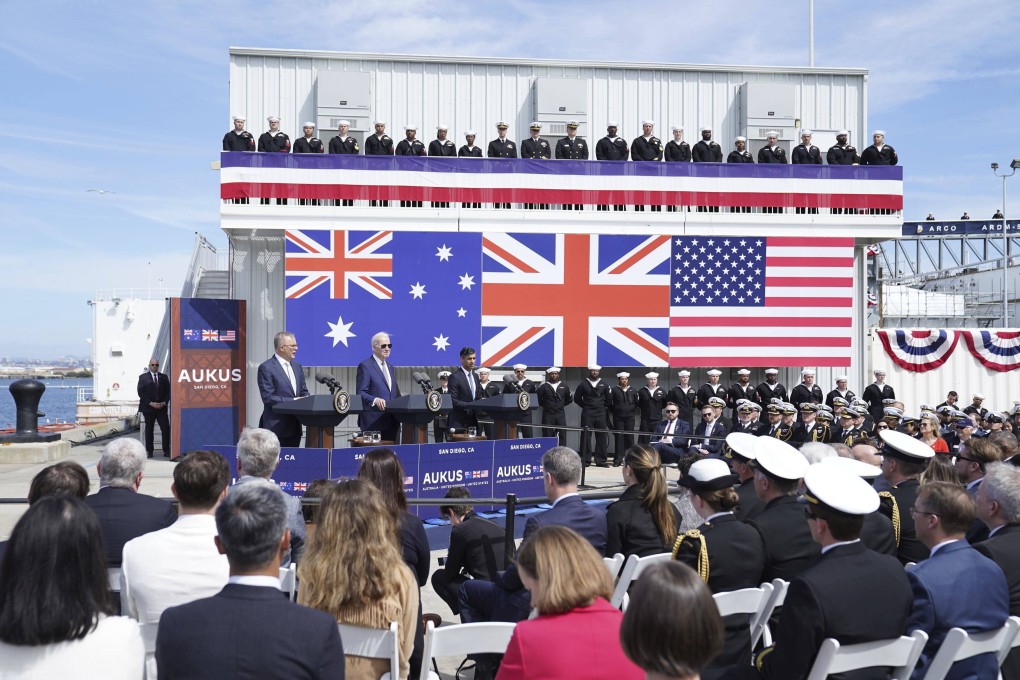Australia’s Aukus deal safe for now, but split within Labor reveals ‘grave problems ahead’
- Opposition towards Aukus by members of Australia’s governing Labor Party, anti-war groups and affiliated unions forced a debate after bubbling for months
- While attempts to remove Aukus from Labor’s policy platform did not succeed at the party conference, the growing criticism will be a concern for PM Anthony Albanese

Opposition about Aukus from the party’s rank-and-file, anti-war groups and affiliated unions has been building up for months, eventually forcing a debate on the deal at the Labor Party’s triennial conference on Friday.
Both Prime Minister Anthony Albanese and former leader Scott Morrison – who first agreed to the deal – have been criticised for taking on the expensive taxpayer-funded A$368 billion (US$237.2 billion) pact, without much parliamentary or public consultation. The debate on Friday is the first time it has been openly discussed.
But attempts to remove Aukus from Labor’s policy platform on Friday did not succeed given most in the party supported Aukus, although MP Josh Wilson broke ranks to openly oppose the deal, while there were interjections of disagreements throughout the debate.
Wilson said the decision to acquire the submarines was not justified and posed many risks, including harming Australia’s commitments to the non-proliferation of nuclear weapons.
“We must continue to bring that kind of searching and sometimes difficult debate to these matters, which more than some other topics frankly require greater scrutiny rather than less, and should never ever be advanced on the basis that they are the decision-making preserve of some defence and security establishment,” he said.
“Deterrence is not a one word justification for every defence position.”